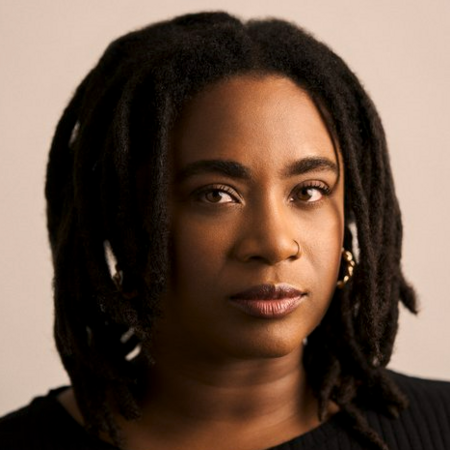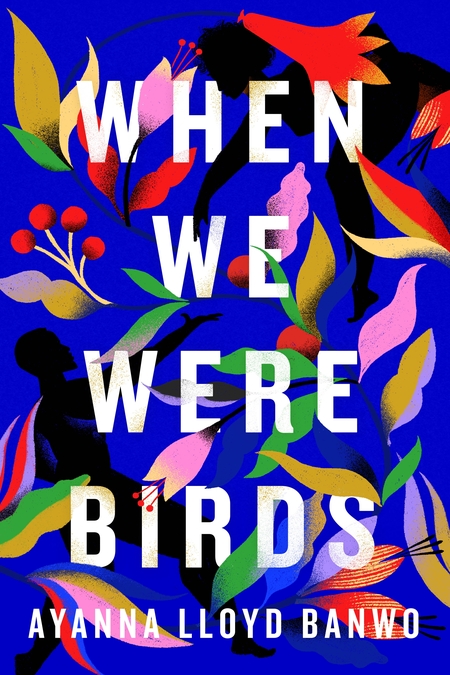If you have ever thought that love, in all its many-splendoured glory has a supernatural feel to it. then you will find much to love in When We Were Birds by Ayanna Lloyd Banwo.
An evocatively written novel that seamlessly and affecting melds a love story with a ghost story, When We Were Birds tells the story of Darwin, a young man from the interior of Trinidad who has made a recent life decision which has put him at odds with his mother.
Seeking work to support himself and her, though it seems she is refusing to touch the funds he remits, believing them to be tainted, Darwin takes a job as a gravedigger at one of Port Angeles’s older cemeteries, where he is assigned to work the foreman Errol, who may have a lot more going on than the simple digging of graves, and his team.
He isn’t comfortable with the way the men treat him or the hint of corruption that clings to them like death, but he has little to no choice when it comes to employment prospects, and so he does his best to get by, buoyed by the idea that his father, who abandoned his wife and infant son, may yet be there to be found on the city’s manically bustling streets.
A man of kind heart and loyalty to those he loves, which includes his mother no matter the level of estrangement she invokes, Darwin is a man hoping for a great deal for life but caught having to accept that, for now at least, he has to make do with what he has got.
All of them know that mourning is not a thing that have an end – is not a rope – but every day they carry the hope that today might be the day that Petronella [Yejide’s mother] shake herself up and start back living. Every now and again Yejide catch a whisper between Peter and Mr Homer. She know they worried – bout the business and bout the other kind of work that they can’t see – now that Petronella hiding away inside herself. (P. 54)
On a hill outside of the city, one mysteriously built from the ashes of a plantation owners burned-down home, lives Yejide, a woman who is heir to a most unique familial legacy.
The woman in the family can speak to the departed, a sacred gift which is both and a curse, more the latter than the former at first after Yejide discovers that her dying mother has failed to prepare her daughter for the extraordinary calling she is about to inherit.
Caught up in a great deal of emotional conflict, not least because Yejide has always resented the fact that her mother had endless amounts of time and emotional bandwidth for her twin, Geraldine, with whom she was inseparable, and none for her own child, Yejide is struggling to deal with a rush of visions, wild swings of emotion and the startling reality that the stories her grandmother told many years earlier are in fact true.
When We Were Birds is concerned then, in ways lyrically poetic and movingly empathetic, with what it means to be grasping for something greater than your current circumstances – for Darwin this isn’t defined while Yejide knows increasingly what hers will be – while stuck in the place that currently makes up your realty.
How do you move from the present to the future when so much about your current circumstances seem impossible to get through or control?

It’s no small question, and Lloyd Banwo doesn’t treat it as such, allowing Darwin and Yejide, who meet for the first time under the most magical and mystical of conditions, the time they need to figure out what lies hold for them, separately, and increasingly together.
For these lost souls, searching for a destiny that makes sense to them, belong together and are clearly destined to be the yin to the other’s yang, a fated coming together than naturally overturns any idea of what life might have had in store for them.
It also means that a whole lot of other relationships come to a head too.
Darwin finds himself increasing at odds with Errol, who is all smiles and sunshine until he doesn’t get what he wants while Yejide, encompassed by family and her best friend, Seema, isn’t sure how she transitions from heir apparent to the reigning speaker to the dead, and whether she a burden that hallowed and important at all.
It’s a lot to deal with but it becomes increasingly easier when the two lost souls meet, mystically and then in person, and find that having someone in your corner is infinitely better than dealing with things alone.
That’s not to say their lives themselves become easier because a great deal weighs upon them in the final act and they are challenged at just about every turn, but facing these grave assaults on their lives, literal and existential, is made far more a lighter load to bear because they have each other.
‘Evenin’, the boss.’ The man nod and the other fellas mumble and nod too. Darwin almost spin around to see who else in the road they could be talking to. But is only home and them and the broken, flickering street light and something that wasn’t there in their eyes before. Respect. It makes Darwin shiver. (P. 141)
The coming together of Darwin and Yejide is a beautiful thing anyway but Lloyd Banwo gives it even more of a lustrously heartwarming glow by giving their magically-infused romance a moving sense of two people falling gratefully into each other’s arms.
They are scarcely able to believe they have found each other, and in a way that defies anything you might reasonably expect to have happen in an avowedly material world, and their mounting joy at the thrill of togetherness is told with real passion, near palpable excitement and a rich appreciation and evocation of how finding that special someone to belong to can radically change your life for the better.
There is darkness, yes, and titanic struggle aplenty in When We Were Birds which knows all too well how cruelly unyielding and isolating life can be, but there is also abundant, exuberant hope, the hope that feels manifestly real and possible because it is right down there in the trenches where life happens.
This is no greeting card hope, rich in sentiment and light in practicality, but the muscular kind that, combined with love, arms someone in ways truly meaningful to face whatever comes their way.
It imbues the honesty of When We Were Birds about life’s dark and twisting paths, and the terrible things that can befall a person, with a lilting vibrant hope that defiantly stands up to the very worst of things by saying that the very best of things, magical or otherwise, are still possible no matter how volatile and impossible life may seem.
